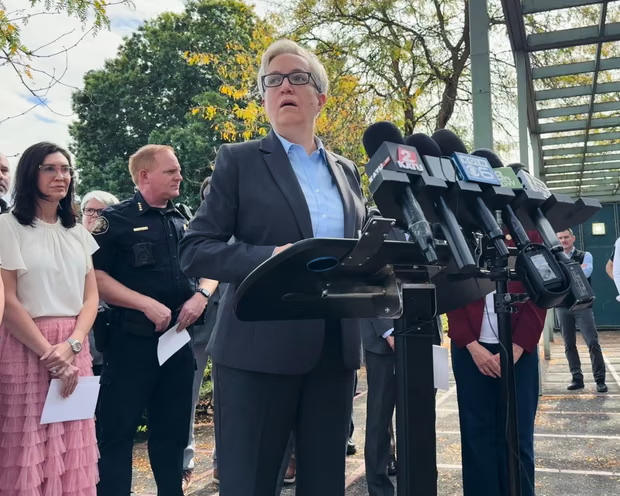Donald Trump has ordered the deployment of the national guard to Portland, Oregon, escalating tensions between federal authority and local leadership. The former president described the city as “war ravaged” and said immigration facilities were “under siege.” Oregon leaders have strongly denied those claims, arguing there is no need for military intervention.
The decision has reignited national debate over the use of federal power during local protests. Trump stated he had authorized “full force, if necessary” to secure federal property, claiming that groups such as Antifa and other “domestic terrorists” were attempting to attack government sites.
Oregon officials immediately pushed back. Governor Tina Kotek rejected the description of Portland as being under attack. She said there was no insurrection and no threat to national security. Local authorities stressed that protests near the federal immigration office were limited in scale and largely under control without outside military help.
City leaders also noted that the presence of heavily armed troops could worsen tensions rather than ease them. Portland’s mayor emphasized that deploying soldiers in the city center would not improve safety but could instead fuel more unrest.
The protests in Portland are not new. Since 2020, the city has seen repeated demonstrations over federal immigration policies, racial justice, and broader political issues. While some events in past years turned violent, recent gatherings near immigration facilities have been smaller. Local police have managed the protests without requesting national guard support.
Trump’s decision to describe Portland as “war ravaged” has drawn criticism from analysts and political opponents. They argue that his framing misrepresents the situation on the ground. Many see it as part of a wider strategy to present strong federal control while dismissing local authority.
This move highlights the ongoing struggle between federal and state governments over who has the final say in local security matters. Under U.S. law, governors usually control the national guard within their states unless federalized. By deploying troops without state consent, Trump risks deepening political divides.
Critics warn that the decision could set a precedent for federal overreach in future cases of civil protest. Supporters of the move, however, argue that protecting federal property is a clear national interest and justifies direct intervention.
The national guard order comes at a time when Trump continues to position himself as a candidate who takes strong action against domestic threats. His language around “domestic terrorists” echoes earlier statements during his presidency, when he often connected left-wing groups to unrest in American cities.
For Oregon leaders, the dispute may strengthen their image as defenders of local governance against federal intrusion. Governor Kotek framed her opposition as a stand for state rights and the protection of democratic decision-making at the local level.
Residents of Portland remain divided. Some agree with Trump’s hardline stance, saying the city has faced too much disruption in recent years. Others side with local leaders, warning that military troops on city streets could create more fear than security.
Civil rights groups also raised concerns about the potential impact on free speech and protest rights. They argue that labeling protesters as terrorists risks criminalizing dissent and expanding the role of the military in civil affairs.
It is still unclear how many national guard troops will be deployed or how long they will remain in Portland. Federal officials insist the move is temporary and focused on securing immigration facilities. State leaders, however, continue to call for the withdrawal of military forces, stressing that Portland is not in crisis.
The coming days will test how far the federal government is willing to push against local opposition and whether the deployment escalates or reduces tensions in the city. What remains certain is that Trump’s national guard order has turned Portland into a focal point of national debate once again. The clash between federal authority and local governance is shaping up as another defining battle over the limits of presidential power in the United States.







